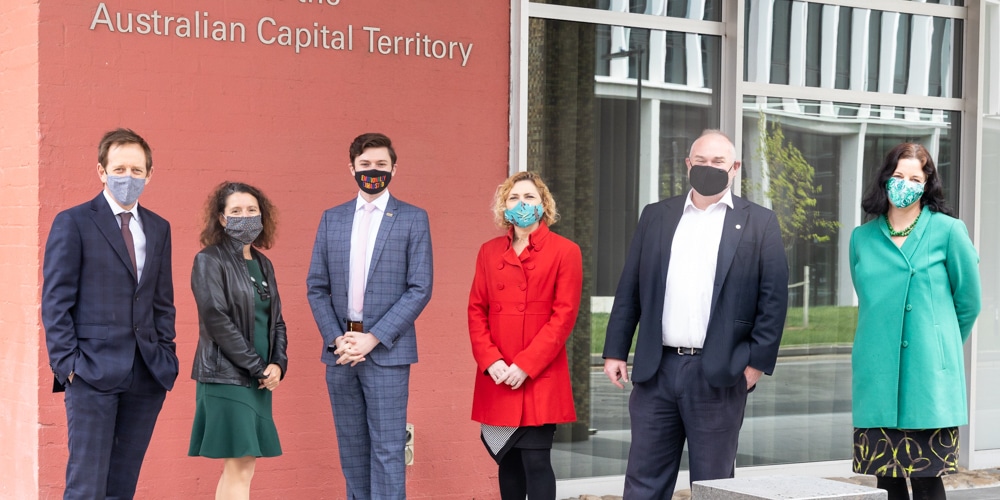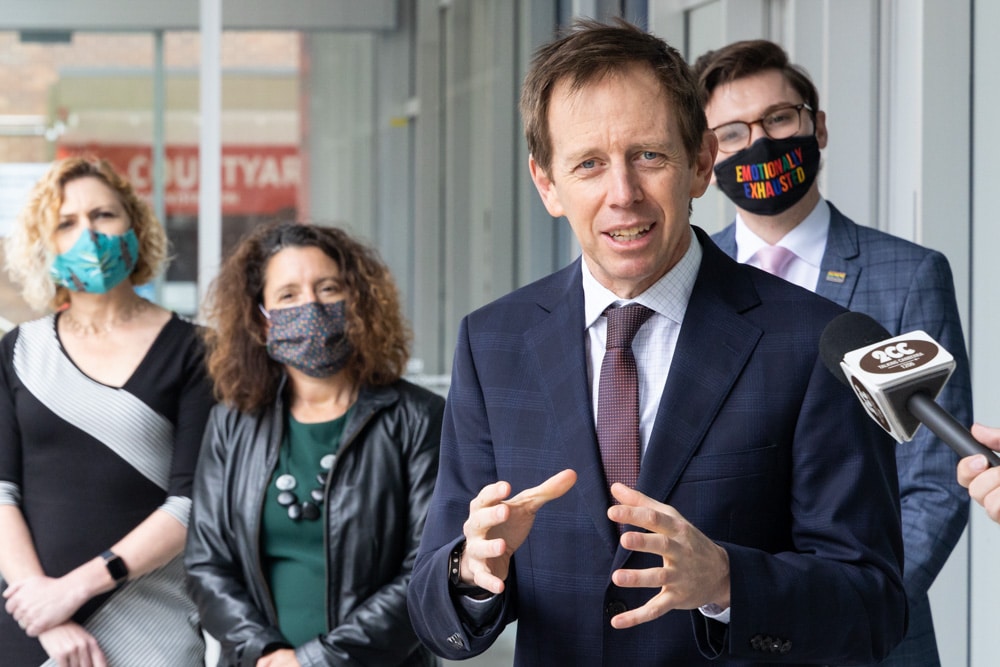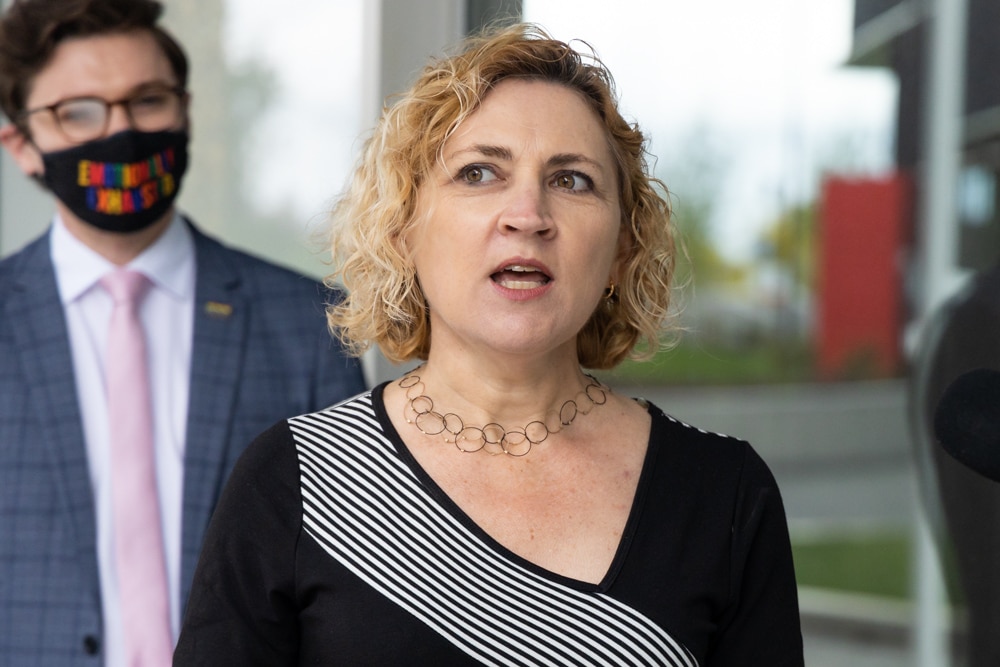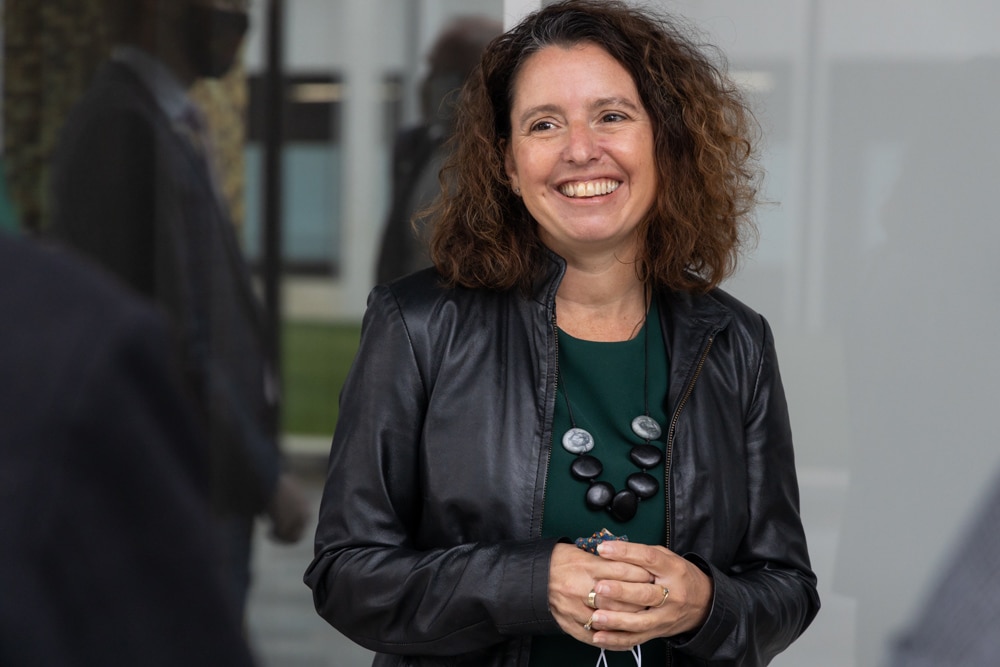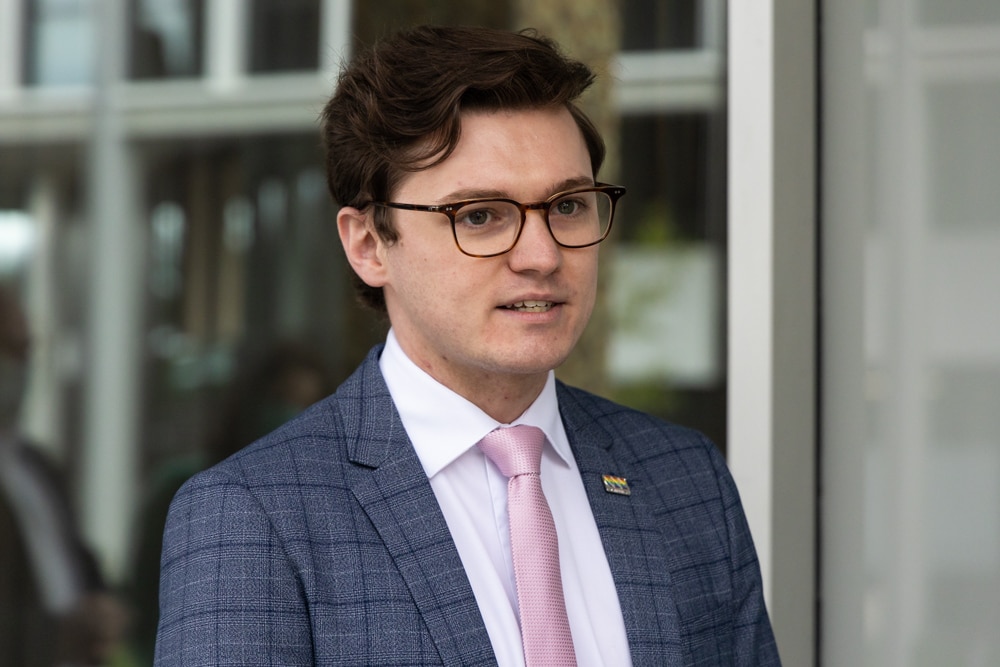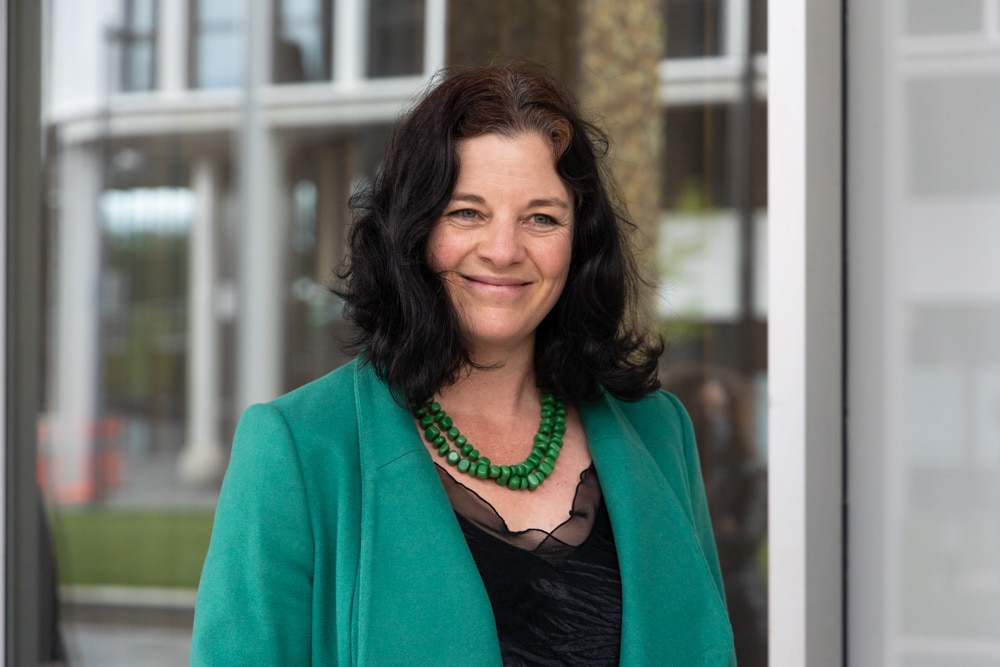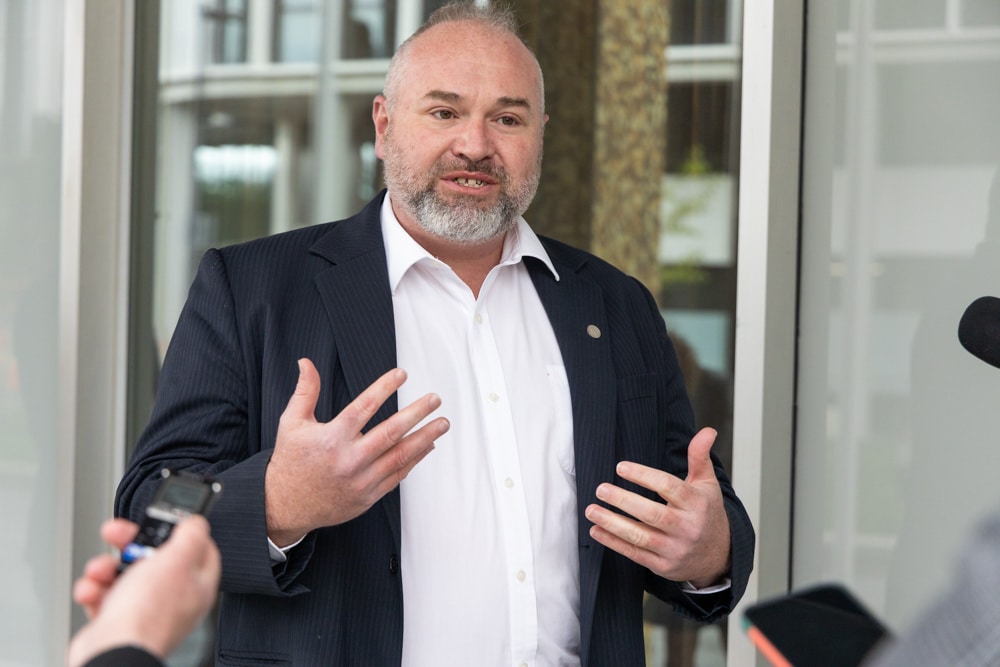One year ago today, Canberra elected six Greens candidates to the Legislative Assembly: three (including returning party leader Shane Rattenbury) as Cabinet ministers, three to the cross-bench. The Greens, the fastest-growing party in the ACT, hold nearly a quarter of the seats and the balance of power for the fourth time – a world first.
“From the north of Gungahlin to the deep south of Tuggeranong,” Mr Rattenbury said, “every suburb in Canberra has a Greens representative.”
The five new MLAs had run social service organisations, campaigned for environmental issues, run recycling companies, convened feminist lobby groups, and even performed drag. They were united by their desire to save the planet, to make a more caring society, and to create a better future.
And a year on, said Brindabella member Johnathan Davis, the passion and idealism the MLAs had at the start is now coupled with a practical understanding of how the Assembly and government work, and of how to advance their policies.
“So many of us are connected to the Greens politics and the global Greens movement because we care about the world and a Green mantra of thinking globally, but acting locally,” he said.
“[We bring] that same passion to the pothole in the cul-de-sac or the micro-forest around the corner, these community-led projects that the people in our district we represent are passionate about.
“If anything, I’ve become passionate about more things since getting elected, because I’ve learnt more, and now my to-do list continues to expand.”
Sometimes, though, he admitted, being a public figure can have its downsides.
“No matter how much people encourage you to prepare,” Mr Davis said, “there’s only so much preparation you can do for being recognised at the grocery store in your ugg boots and your track pants, picking up a bottle of milk, and having an hour-long conversation in the biscuit aisle about rubbish or potholes. That’s a fun part of the job, depending on the time of day, but sometimes it can be a challenge, too!”
An ambitious agenda
The Greens are determined to create a new normal, Mr Rattenbury said: to tackle climate change and to address the inequalities exacerbated by the COVID-19 pandemic. Through their partnership with ACT Labor, the “stable yet progressive” government is leading the nation in many areas, he said, from renewable energy and climate change to raising the minimum age of criminal responsibility.
“Housing and homelessness is one of the biggest successes of the last 12 months,” said Rebecca Vassarotti, Member for Kurrajong, and a Minister whose portfolios include the Environment, Heritage, Homelessness and Housing Services, and Sustainable Building and Construction.
The Greens committed to build 1,000 new social housing properties, and this year has seen $80 million invested in maintenance, the beginning of build to rent schemes, and the first funding increase for specialist homelessness services in nearly a decade.
Emma Davidson, Member for Murrumbidgee, and Minister for Disability, for Justice Health and for Mental Health, oversaw the much-needed additional community and mental health and wellbeing support during lockdown, while mental health funding was increased in the last budget.
Environmental volunteers have secure funding for the first time, and environmental grants have increased for the first time since the 1990s; corporate school banking programs will end; the ACT has a treaty to end fossil fuels; and e-waste recycling will improve.
“We all feel like it’s been a big year,” said Rebecca Vassarotti. “We’ve achieved a lot, but we’ve only just started. We’ve got a lot of work to do.
“We can really see change happening and … that there’s a difference that we can make.”
Learning the ropes – and the red tape
While it has been a successful first year in politics, it has also been a learning curve, Ms Vassarotti found.
“We were all new to politics and new to the Assembly, so there were a lot of procedural things we had to learn. We might have done a lot of thinking about the big policy ideas and the changes we wanted to make, but we may not have known the intricacies of how to put forward a motion or how to operate in the Assembly.”
Shane Rattenbury helped them learn the process, Ms Davidson said. “We had someone who knows how it’s all done and can guide us along the way; also, we’re all doing it together. So there’s a lot of talking to each other about what we’re doing, what we’re working on, getting ideas from each other about how we can progress some of these big policy ideas that we Greens love working on. There’s nothing better than doing good work with a great team!”
Jo Clay, member for Ginninderra, sometimes found the mechanics of government slow and unwieldy. She entered politics because she is “seriously worried” about climate change; being a Green in the Assembly is a great place to be, she said – but politics can also be frustrating.
“It can take a long time to get the things done that you really know need to be done,” Ms Clay said. “Before this, I ran a recycling company and a climate change project, and I had a lot of control. I could see what needed to be done, and jump in and do it. You have to adapt to this different environment, working with people to try to steer things.”
Developing constructive relationships, both personally and at an organizational level, with both Government and Opposition members helps the MLAs achieve their aims, Ms Vassarotti said. “We work in a small community; we’re all connected.”
Yerrabi member Andrew Braddock’s favourite achievement from the last year is a case in point: a difference in policy position over the Gungahlin town centre planning. “That played out in the public sphere, but we were still able to work with each other successfully,” he said.
Looking ahead
The Greens know what they want to achieve over the next year. For Jo Clay, it’s real climate action.
“COVID has given us something else to worry about, but it hasn’t actually changed any of the other big problems that we went into COVID with,” she said. “In fact, it’s made the other problems worse; the people who are suffering the worst from climate change inequality are suffering now more than they were before with COVID, and we need to make sure that we work out some of those issues. We really can’t afford to take our eye off the ball.”
Rebecca Vassarotti agreed that the inequality crisis must be fixed. She said she would work every day to ensure everyone has a home and a safe place to sleep.
Johnathan Davis wants to lower the voting age. Young people, he said, are disproportionately impacted by the climate crisis; they will find it harder to rent and buy homes than any other generation before them. Young people were also disproportionately impacted by the pandemic; many work in the retail and hospitality and tourism sector, and until recently, they could not get vaccinated.
“Young people are politicised, young people care about all of these issues, and we’ll have a stronger and better democracy when young people are represented in the vote.”
And Emma Davidson wants Canberra to come out of the pandemic a kinder, more connected community.
“When you look at who’s most impacted and the ways in which they’re impacted by the economic effects of what’s happening, as well as healthcare, you can’t help but want to get things in place that are going to support people through this – and I think that’s what the rest of Canberra wants as well. That’s why we’re here.”
Shane Rattenbury Emma Davidson Rebecca Vassarotti Johnathan Davis Jo Clay Andrew Braddock
Get all the Get all the latest Canberra news, sport, entertainment, lifestyle, competitions and more delivered straight to your inbox with the Canberra Daily Daily Newsletter. Sign up here.

